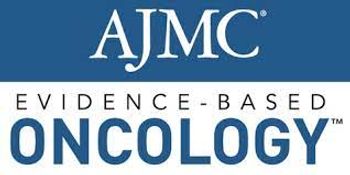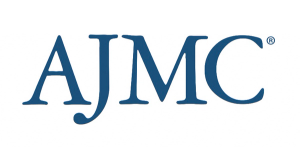
The editors in chief of AJMC discuss the key managed care research and news from 2025 as the journal celebrated its 30th anniversary.

The editors in chief of AJMC discuss the key managed care research and news from 2025 as the journal celebrated its 30th anniversary.

To mark the 30th anniversary of The American Journal of Managed Care (AJMC), each issue in 2025 includes a special feature: reflections from a thought leader on what has changed—and what has not—over the past 3 decades and what’s next for managed care. The December issue features a conversation with AJMC Co–Editors in Chief A. Mark Fendrick, MD, director of the Center for Value-Based Insurance Design and a professor at the University of Michigan in Ann Arbor; and Michael E. Chernew, PhD, the Leonard D. Schaeffer Professor of Health Care Policy and the director of the Healthcare Markets and Regulation Lab at Harvard Medical School in Boston, Massachusetts.

Stronger partnerships between primary care and oncology improve patient outcomes by ensuring coordinated care and addressing financial and systemic barriers, says Mark Fendrick, MD.

Five experts share their key takeaways from Patient-Centered Oncology Care® (PCOC) 2025, highlighting AI integration and collaboration to improve care.

Teamwork between primary care providers and oncologists helps patients get needed care and achieve better results, according to Mark Fendrick, MD, at the Patient-Centered Oncology Care (PCOC) conference.

Investing in patient navigation and clinician incentives ensures colorectal cancer screening completion, improves early detection, reduces disparities, achieves cost savings, and advances population health for all stakeholders.

Telemedicine was associated with a monthly avoidance of greenhouse gas emissions equivalent to the emissions of 61,255 to 130,076 passenger vehicles.

The high cost of incretin mimetics for weight management limits insurance coverage and potentiates variation in utilization management strategies to control near-term spending.

The authors advocate for the implementation of value-based principles to address the underutilization and limited supply of home care and rehabilitation services.

Multicancer early detection testing results in extended life-years and reduced cancer treatment costs through earlier diagnosis, leading to a cost-effective option in cancer screening.


The authors advocate for a consideration of 2 distinct phases of obesity management (ie, active weight loss and maintenance of weight loss) to allow substantially more people access to antiobesity medications.

The authors advocate for a strategy that reallocates the substantial workforce effort and financial resources currently devoted to low-value care to enhance access and affordability of high-value services.

Low-value service utilization is common among all older adults, and utilization of some high-value services decreases after the onset of cognitive decline.

Identifying and addressing unmet social needs without attention to other contributors to health inequities—such as medical mistrust—is unlikely to yield desired outcomes.

If we are to achieve the clinical and economic benefits of primary care and care continuity, the implementation and evaluation of strategies that reward clinicians and patients are warranted.


Given the severe unmet needs of the most vulnerable members of our communities, geographic expansion and rigorous evaluations of comparable, highly personalized care management interventions are warranted.

As we reset post pandemic, providers and payers are in an excellent position to prioritize a reallocation of health care expenditures driven primarily by individual and population health gains.

Use of low-value care services during COVID-19 exhibits substantial heterogeneity but, on average, shows declines similar to the use of high-value services; low-value care use lags behind high-value care use in the rebound phase.

As promising advances in providing care at home evolve, further research—with special attention to underserved populations—is needed to assess the clinical, equity, and economic impacts and to accelerate implementation where appropriate.

The authors of this editorial highlight some of the myths surrounding complex care management, identify areas where research could be most informative, and recommend best next steps in developing effective and efficient complex care management programs.


As awareness of nonalcoholic fatty liver disease (NAFLD) rises, it is essential to develop and implement a rigorously determined approach to identify patients who will, or will not, benefit from diagnostic evaluation.

Reducing cascades while maintaining our commitment to high-quality care requires equipping patients and clinicians with the information, tools, and support to embrace uncertainty.

Multicancer early detection technology could help reduce cancer mortality compared to the current strategy of single-cancer screening tests.

Multicancer early detection technology could help reduce cancer mortality compared to the current strategy of single-cancer screening tests.

To mark the 25th anniversary of the journal, each issue in 2020 includes an interview with a health care thought leader. The December issue features a conversation with the journal’s co-editors-in-chief, Michael E. Chernew, PhD, and A. Mark Fendrick, MD.

Although shortfalls in continuity were well described prior to coronavirus disease 2019 (COVID-19), the pandemic has created an opportunity to augment this critical component of care delivery, with the potential to improve patient-centered outcomes and enhance spending efficiency.


Published: September 26th 2025 | Updated:

Published: December 10th 2024 | Updated:

Published: January 8th 2025 | Updated:

Published: May 28th 2021 | Updated:

Published: December 2nd 2025 | Updated:

Published: April 8th 2022 | Updated:

259 Prospect Plains Rd, Bldg H
Cranbury, NJ 08512
© 2025 MJH Life Sciences®
All rights reserved.
